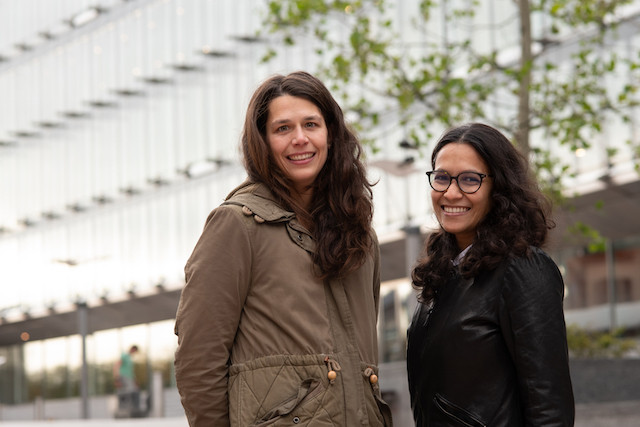Weo co-founders say better water resources management can have a significant impact on urban transformation. The startup, registered in March 2020, takes data from space--satellite images, for example--and via deep-learning algorithms provides its clients with maps and derivative information which can be used to improve the quality of living, especially in cities.
As co-founder and CEO Imeshi Weerasinghe explains, such information can reveal “where you can have potential green roofs, or [see] how healthy the urban vegetation is [and] also where we have a lot of impermeable surfaces in cities, such as carparking spaces, [which could] maybe change to permeable surfaces so that water can get through.”
Weerasinghe and fellow co-founder and CTO, Charlotte Wirion, registered their company in Luxembourg in March 2020. The pair met while working on their PhDs at the Free University in Brussels. Weerasinghe, who formerly did project management at the Australian Bureau of Meteorology before arriving in Europe, also has degrees in water resources management and economics. Wirion’s background is in environmental science and engineering; she previously did landslide research with the US Geological Survey.
The two say they became convinced that some of the projects they were working on lacked information, and companies weren’t always translating research into application.
“Throughout all this research experience, what we found missing was a continuous way of giving this information to administrations and engineering offices,” Wirion says.
The pair’s idea is that water management agencies, urban planners and engineering firms can use the reports for more efficient water and vegetation management, plan for seasonal variations, and improve agricultural planning. Luxembourg's hydrographic network, for example, covers some 1,800 km of waterways, according to the environment ministry. Many small rivers in particular are susceptible to seasonal variations and flooding, but Weo hopes to help agencies tackle such challenges.
Wiron sees, for instance, of lot of potential in rethinking water collection and cities. “With regards to urbanisation there is a big impact in how we build our cities, how we have managed rainwater so far, mainly putting water under ground in order to not see it, but there are a lot of issues with regard to water quality.”
But such a vision goes well beyond just water management. “It’s also important for urban climate and urban wellbeing and liveability,” Wirion adds. “By tackling urban water management you also tackle a lot of other areas for citizens.”
Currently the team is focused on open data, e.g. via the European Space Agency, for its solutions “because it does bring the costs down a lot, and it’s much more accessible,” Wirion says.
While Weo is now in talks with a number of potential clients, there is also vast potential for their data to be used in other regions. “Right now we focus a little bit on the Benelux region, and at the moment a lot in Luxembourg,” Weerasinghe explains. “But our goal is to go global and do work in developing areas as well.”
An alternate version of this interview will appear in the January 2021 print issue of Delano which will be released on 16 December.
